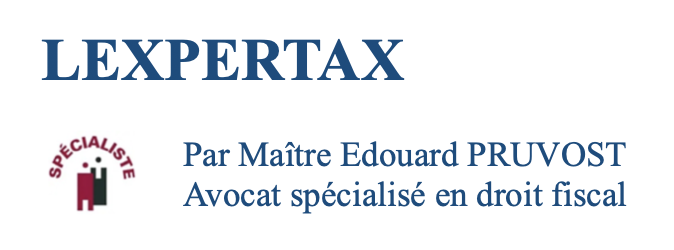Individual tax audit
Examination of Personal Tax Situation (ESFP)
Tax inspection serves as a scarecrow for all French taxpayers.
The French tax system is declarative, meaning that taxpayers declare their income themselves, and for those concerned, the amount of their real estate assets, every year. The tax authorities can therefore control these declarations for a period of three years following the declaration.
The tax authorities have several options to examine a taxpayer’s tax situation.
They can send a simple request for information or justification regarding a declaration of real estate assets, for example. It is already advisable to respond to such a request under penalty of being taxed by default.
They can also carry out a comprehensive examination of the taxpayer’s personal tax situation.
The procedure is provided for in Article L12 of the Tax Procedure Code. It allows the tax authorities to verify that the elements entered on the income tax returns correspond to reality. To do this, they may compare the declarations with the taxpayer’s bank statements, among other things.
It always begins with the sending of a verification notice to the taxpayer, which is accompanied by the taxpayer’s charter. The taxpayer has the option to be assisted by a lawyer during the entire examination period.
Several interviews with the verifying service may take place, which may also require the production of supporting documents.
The verification period cannot in principle exceed one year.
The ESFP generally ends with the sending of a proposed adjustment, and then the pre-litigation phase begins.
Follow-up of the Examination of the Personal Tax Situation
– The Pre-litigation Phase
From the receipt of the proposed adjustment, the taxpayer has 30 days to submit observations to the tax authorities (this period can be extended to 60 days in certain cases).
The tax authorities will then examine the arguments put forward, and they are obliged to respond to them. They may decide to maintain their adjustments in whole or in part.
In the event of total or partial maintenance of adjustments, the taxpayer will have the option to request an amicable settlement. This takes the form of a meeting request with the principal inspector, and then with the departmental interlocutor.
Attention, these various remedies are not always available. Indeed, it depends on the procedure that is used: contradictory procedure or default taxation procedure. Depending on the procedure, the taxpayer’s rights and guarantees are more or less extensive.
The recovery of additional tax reminders marks the end of the pre-litigation procedure and the beginning of the litigation phase.
– The Litigation Phase
Before being able to appeal to the competent tax judge (Administrative Tribunal or Judicial Tribunal), the taxpayer will once again have to challenge the additional tax reminders through a contentious claim.
The tax authorities will then have to express their position expressly or tacitly in response to this claim. In the event of rejection, the taxpayer can appeal to the competent judge.
The dispute will continue before the administrative or judicial courts depending on the tax involved.
Attention, the litigation procedure, like the pre-litigation procedure, is subject to important formalities and strict deadlines.
Why Hire a Tax Lawyer?
Seeking the assistance of a lawyer is always advisable in the context of a contentious or pre-litigious procedure. In the case of ESFP, the experience and knowledge of a tax lawyer can prove crucial.
It is recommended to engage a tax lawyer upon receipt of the ESFP notice so that they can engage with the tax authorities during the examination. A proactive strategy will always be more effective.
During the pre-litigation and litigation phases, the tax lawyer will defend your interests through a thorough analysis of your situation and a perfect mastery of tax rules.
The tax lawyers at LEXPERTAẌ are experts in tax litigation, especially in the examination of the taxpayer’s personal tax situation.
We undertake to make our know-how available to you to assist, defend, and represent you throughout all phases of the procedure.
